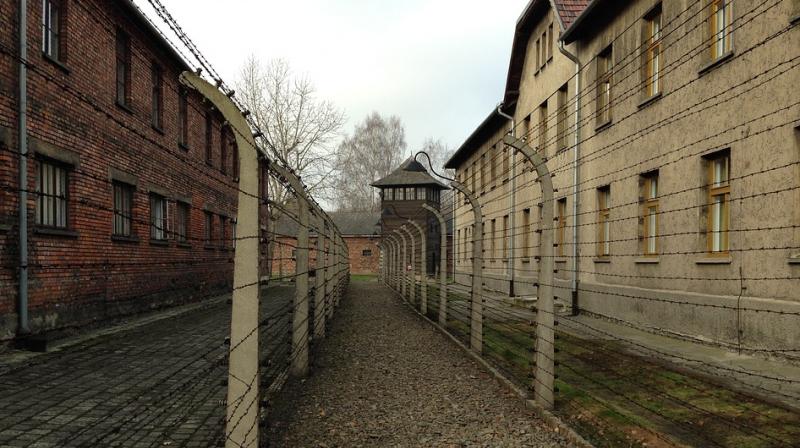Long-lost songs of Holocaust victims discovered

Washington: For the first time in 70 years, music by the survivors of Nazi concentration camps may be heard, thanks to discovery of recordings of "Henonville Songs" - performed in Yiddish and German - that were long thought lost.
In the final months of World War II, as Allied Forces began to liberate the prisoners of Nazi concentration camps, they captured on film the horrors they saw around them.
Soon, the whole world saw - images of skeletal survivors bearing silent witness to what they and millions more had been forced to endure.
In 1946, researcher David Boder interviewed at least 130 Jewish survivors in nine languages in refugee camps in France, Switzerland, Italy and Germany.
With a wire recorder - then considered state-of-the-art equipment - and 200 spools of steel wire, Boder preserved some of the first oral histories of concentration camp survivors.
He also recorded song sessions and religious services.
A portion of Boder's work has been archived at The University of Akronin the US since 1967. A recent project to digitize led to the discovery of a spool containing the "Henonville Songs," performed in Yiddish and German and long thought lost.
"I think it is one of the most important discoveries from our collections in our 50-year history," notes David Baker, from the University of Akron.
"The songs were recorded at a refugee camp in Henonville, France. The Nazis made the prisoners sing some of these songs as they ran to their forced labour sites and back each day," Baker said.
"That we could give the world the melody to a song sung by those sentenced to their death through forced labour during one of the most unspeakable horrors of the 20th century is remarkable," Baker said.
"The discovery of this single canister holding a lost recording means that these songs can be heard again, they can be studied and they can inform us in a new way about the experiences, the joys and the frustrations of these displaced persons," said Jon Endres, a media specialist with at the University of Akron.
"These songs, in the voices of those subjected to unspeakable cruelty, are a reminder of the power of memory, the value of history and the indomitable human spirit," said Baker.
"Hearing them sing again after 70 years of silence gives the world a greater understanding of the circumstances and experiences of those who were witnesses to a dark chapter in human history," said Endres.

